“Who is more real: Us? Or Superman?”. This is the provocative question that opens the anticipated new Image series Crossover by Donny Cates, Geoff Shaw, Dee Cunniffe and John J. Hill. Most people would point towards their own ontological dominance, but Superman (and many fictional characters) also “exist” in some fashion. The extended fluid history of comic books means Superman is older than most people, and will continue to live long after them. Superheroes are modern myths that are perpetually revived, taking on a life of their own. Grant Morrison often explores this idea, most directly in his book Supergods, examining how fictional beings are deities “made real” by our beliefs. Crossover takes this premise even more literally, opening with an inexplicable event where “every ‘fictional’ comic book character you’ve ever heard of” – from Batman to Savage Dragon – bursts from the page into Denver. However, the cacophony of costumes and superpowers causes untold destruction and havoc in the city, making it become sealed-off. Superheroes may be Gods, but this cataclysmic crossover between ‘fiction’ and ‘reality’ has turned them into demons.
It’s this cultural impact that Crossover appears to focus on rather than the inciting incident, cutting to three years later where Ellipsis (or Ellie for short) remains devoted to caped-crusaders through cosplaying and working in a comic book shop despite protestors outside. After the event, comics and superheroes are seen as tokens of the devil, with rednecks and evangelical preachers condemning Ellie’s traitorous worship. Crossover also references Frederic Wertham, the psychiatrist famous for accusing comics of moral perversion and delinquency in the 1950s and subsequently establishing the regressive Comics Code Authority. Essentially, Crossover has constructed a world where comics are “dangerous” again. Instead of being a commercialised mainstream medium, Crossover almost yearns for a time when enjoying superheroes was a marker for persecution.
This part of Crossover’s premise makes it fairly icky, revelling in the industry’s old-fashioned inferiority complex and reconstructing the comic book store as a ‘sanctum’ against an unforgiving and ignorant world. It seems particularly short-sighted given the current scrutiny around the toxic habits of comic fandom and how they’ve actually excluded and marginalised people within them. Crossover’s creative team likely didn’t intend these implications (and indeed could potentially re-examine such claims later on in the series), but the execution leans less towards ‘love-letter’ than self-aggrandisement, throwing in cultural reference-points with the same nostalgic indulgence as Ready Player One. At one point, a trucker throws beer bottles at Ellie beneath a billboard saying “God Hates Masks”. Appropriating the infamous homophobic slogans of the Westboro Baptist Church to be against comic-readers instead is one thing, but it also comes off as pretty lazy.
Apart from these overarching issues, the groundwork of Crossover is solid place-setting, establishing the main premise and introducing us to Ellie and the thrust of her story. Cates delivers some clunky exposition around Ellie’s parents, but it is the first issue after all, and for the most part her exchanges with her circle gives them a reasonable grounding in this fantastical world. The narration particularly is intriguing, tempting readers to follow where Crossover goes. Geoff Shaw’s artwork has an elastic quality, his figures being stretched caricatures who retain enough solidity for human storytelling. The brief glimpses at the opening event also show the cosmic possibilities of the superheroes and comic-book world, effectively differentiated by Cunniffe’s colouring. He keeps things fairly drab and mundane but injects certain clothing with vibrancy (like Ellie’s bright-yellow raincoat) or replicates pink polka-dotes (officially known as the Ben Day process) for the comic book “fakes”.
Crossover has intriguing promise, and its creative team as skilled enough to craft an interesting opening issue. But your immersion in it will depend on much you “believe” in superheroes. If you want to uncritically bask in them and bring unquestioning devotion, then Crossover may pull you in. But if you are more cautious in your faith, and feel that comic book fandoms do not, in fact, need to be saved from persecution, then it might be harder to bring Crossover to life.
Donny Cates (W), Geoff Shaw (A), Dee Cunniffe (C), John J. Hill (L/D) • Image Comics, $3.99
Review by Bruno Savill de Jong





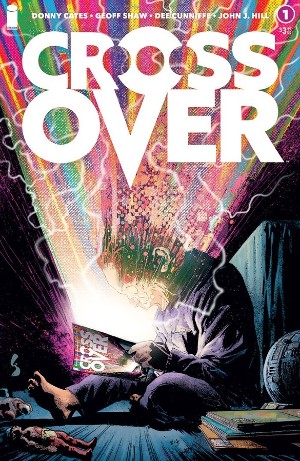
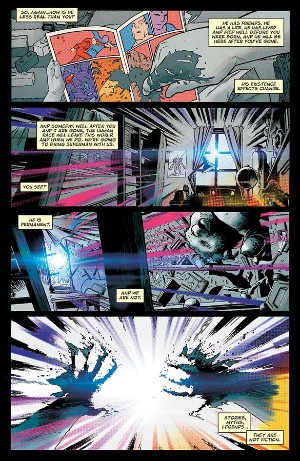
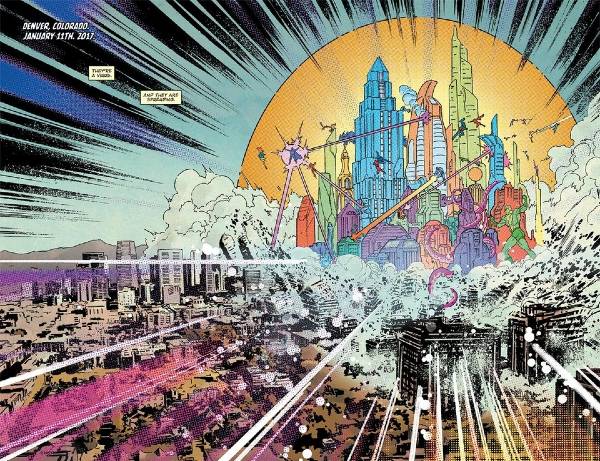
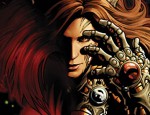
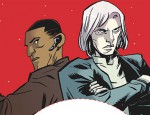
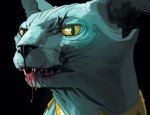
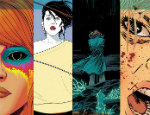


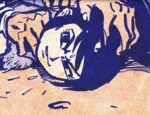
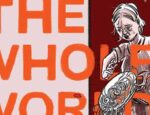
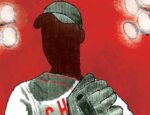
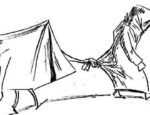
[…] • Bruno Savill de Jong reviews the toxic inferiority complex of Donny Cates, Geoff Shaw, et al’s Crossover #1. […]